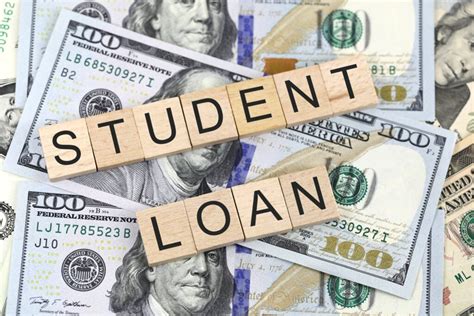As the cost of higher education continues to rise, student loans have become an almost unavoidable reality for students in Maine and across the nation. This comprehensive guide will provide you with all the information you need to understand your student loan options in Maine, including:

- Types of student loans
- How to apply for student loans
- Repaying your student loans
- Student loan forgiveness programs
Types of Student Loans
There are two main types of student loans:
- Federal student loans: These loans are provided by the U.S. Department of Education. They offer a variety of benefits, including low interest rates, flexible repayment options, and student loan forgiveness programs.
- Private student loans: These loans are provided by banks and other private lenders. They typically have higher interest rates and fewer borrower protections than federal student loans.
How to Apply for Student Loans
The first step in getting student loans is to complete the Free Application for Federal Student Aid (FAFSA). The FAFSA will determine your eligibility for federal student loans and grants.
Once you have completed the FAFSA, you will need to apply for student loans from a lender. You can do this online, by mail, or in person.
When you apply for student loans, you will need to provide the following information:
- Your name and contact information
- Your date of birth
- Your Social Security number
- Your driver’s license or state ID number
- Your school’s name and address
- The amount of money you are requesting
Repaying Your Student Loans
Once you have graduated from college or left school, you will need to start repaying your student loans. The amount of your monthly payments will depend on the type of loan you have, the amount of money you borrowed, and the length of your repayment period.
There are a variety of ways to repay your student loans. You can make payments online, by mail, or in person. You can also set up automatic payments so that you don’t have to worry about missing a payment.
If you are having trouble repaying your student loans, you may be able to get help from the federal government. The U.S. Department of Education offers a variety of student loan repayment plans, including:
- Income-driven repayment plans: These plans cap your monthly payments at a percentage of your income.
- Extended repayment plans: These plans give you more time to repay your loans.
- Loan consolidation: This option allows you to combine multiple student loans into a single loan with a lower interest rate.
Student Loan Forgiveness Programs
If you work in certain public service professions, you may be eligible for student loan forgiveness. The federal government offers a variety of student loan forgiveness programs, including:
- Public Service Loan Forgiveness (PSLF): This program forgives the remaining balance of your student loans after you have made 120 qualifying payments while working full-time for a qualifying public service employer.
- Teacher Loan Forgiveness: This program forgives the remaining balance of your student loans after you have taught for five consecutive years in a low-income school.
- Nurse Corps Loan Repayment Program: This program forgives the remaining balance of your student loans after you have worked for two years as a nurse in a medically underserved area.
Key Statistics about Student Loans in Maine
- In 2020, the average student loan debt for college graduates in Maine was $30,000.
- The total student loan debt for college graduates in Maine is over $2 billion.
- The default rate on student loans in Maine is 8.5%.
- The median monthly student loan payment for college graduates in Maine is $300.
Tips for Managing Student Loans
- Borrow only what you need. It’s tempting to borrow the maximum amount of money that you’re eligible for, but it’s important to only borrow what you need to cover your essential expenses.
- Compare interest rates before you borrow. Interest rates on student loans can vary significantly, so it’s important to compare rates from multiple lenders before you decide which loan to take out.
- Make your payments on time. Making your student loan payments on time will help you avoid late fees and damage to your credit score.
- Refinance your loans if you can get a lower interest rate. Refinancing your student loans can save you money on interest, but it’s important to compare rates from multiple lenders before you refinance.
- Apply for student loan forgiveness programs if you qualify. There are a variety of student loan forgiveness programs available, so if you work in certain public service professions, you may be eligible for forgiveness.
Conclusion
Student loans can be a helpful way to finance your education, but it’s important to understand the different types of loans available and the risks involved before you borrow. By following the tips in this guide, you can make informed decisions about your student loans and avoid getting into over your head.
